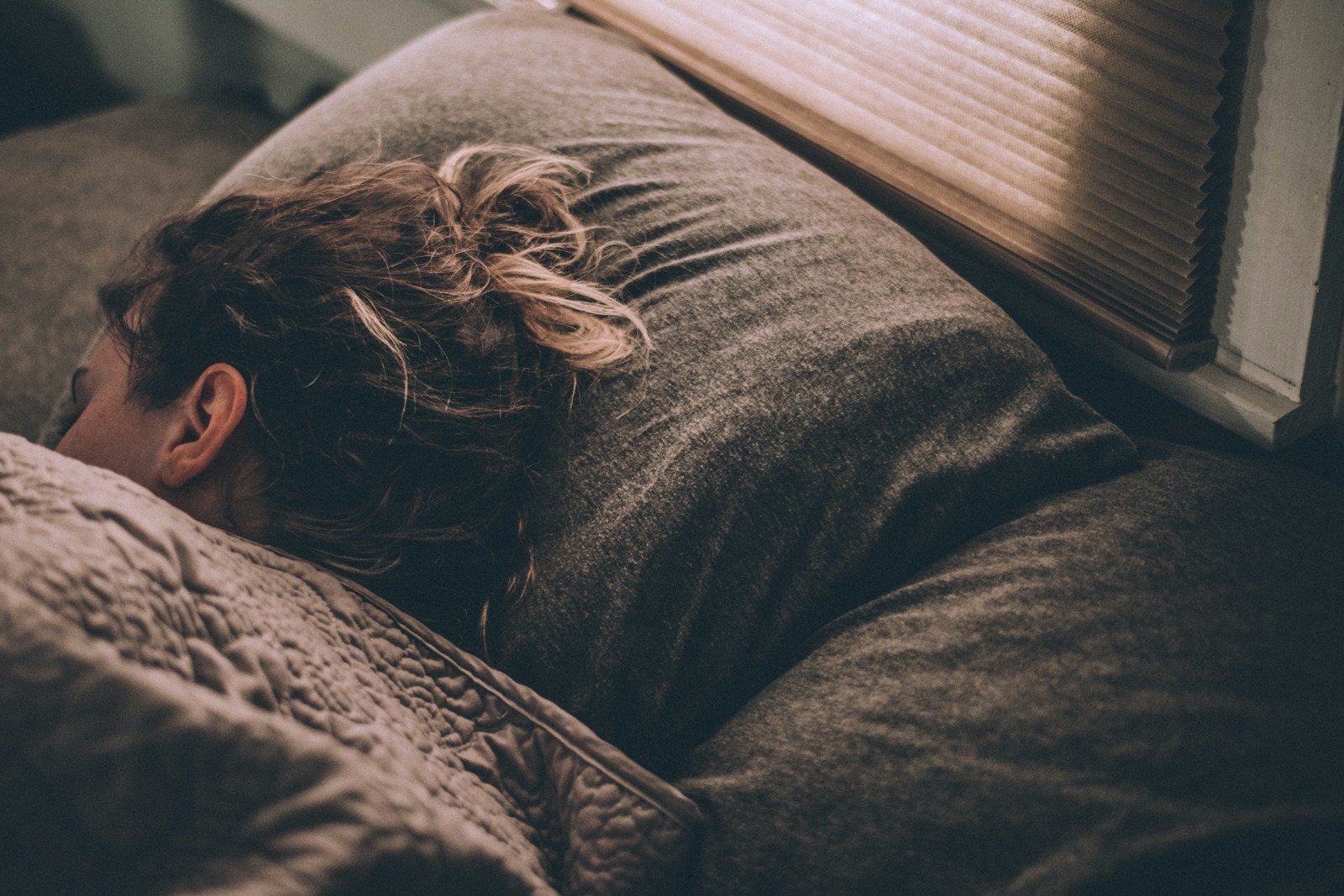Quality sleep plays a vital role in maintaining overall health and well-being.
It is during sleep that the body undergoes essential processes to repair tissues, consolidate memories, and regulate various bodily functions. Lack of adequate sleep can lead to a range of negative impacts on cognitive function, mood regulation, immune system health, and even weight management.
Furthermore, chronic sleep deprivation has been linked to an increased risk of developing serious health conditions such as heart disease, diabetes, and obesity. Prioritizing quality sleep is crucial in optimizing both physical and mental health. It is essential to recognize the significance of a good night’s rest and make it a priority in our daily routine.
Establishing a Consistent Sleep Schedule
Consistency in your sleep schedule plays a vital role in maintaining overall well-being and promoting optimal health. By going to bed and waking up at the same time every day, you regulate your body’s internal clock, known as the circadian rhythm. This regularity helps in syncing your natural sleep-wake cycle, consequently enhancing the quality of your sleep.
Furthermore, adhering to a consistent sleep schedule fosters better sleep habits by training your body to recognize when it’s time to rest. This predictability primes your mind and body for sleep, making it easier to fall asleep and stay asleep throughout the night. It’s essential to prioritize a consistent schedule even on weekends or days off to maintain the stability of your circadian rhythm and reap the full benefits of restorative sleep.
Creating a Relaxing Bedtime Routine
Establishing a calming bedtime routine is essential for achieving a restful night’s sleep. Incorporating soothing activities such as reading a book, practicing relaxation techniques, or taking a warm bath can signal to your body that it’s time to wind down and prepare for sleep. Engaging in these peaceful rituals can help to quiet the mind and reduce stress, promoting a more seamless transition into sleep.
Consistency is key when it comes to a bedtime routine. By establishing a set sequence of relaxing activities each night, you can train your body and mind to recognize when it’s time to rest. This predictability cues your internal clock to release sleep-inducing hormones and promote a deeper, more restorative slumber. Embracing a bedtime routine as a cherished part of your day can help set the stage for a peaceful night’s rest and better overall health.
Limiting Exposure to Screens Before Bed
Exposure to screens before bed can disrupt the body’s natural sleep-wake cycle, known as the circadian rhythm. The blue light emitted from electronic devices such as smartphones, tablets, and computers can interfere with the production of melatonin, the hormone that regulates sleep. This can lead to difficulty falling asleep and obtaining restful sleep throughout the night. To promote better sleep hygiene, it is recommended to limit screen time at least an hour before bedtime to allow the body to naturally wind down and prepare for rest.
By reducing screen exposure before bed, individuals may experience improved sleep quality and overall well-being. Instead of engaging with electronic devices, consider engaging in relaxing activities such as reading a book, practicing mindfulness or meditation, or enjoying a warm bath. Creating a tech-free bedtime routine can signal to the body that it is time to transition to a state of relaxation and rest. Prioritizing this screen-free period can contribute to a more restful and rejuvenating night’s sleep.
Designing a Comfortable Sleep Environment
To ensure a restful night’s sleep, it is essential to create a comfortable sleep environment that promotes relaxation and tranquility. Start by selecting a comfortable mattress and pillows that adequately support your body and align your spine. The bedding should be soft and cozy, encouraging a sense of comfort as you settle in for the night. Additionally, consider the temperature of the room, aiming for a cool and well-ventilated space that is conducive to sleep.
Furthermore, pay attention to the lighting in your sleep environment. Dim the lights in the evening to signal to your body that it is time to wind down and prepare for rest. Opt for soft, warm hues that create a soothing ambiance, promoting a sense of calm before bedtime. Minimize noise disturbances by using earplugs or a white noise machine if necessary to create a quiet and peaceful atmosphere for uninterrupted sleep.

Incorporating Regular Exercise into Your Routine
Getting regular exercise is essential for maintaining a healthy lifestyle, and it can also have a significant impact on the quality of your sleep. Engaging in physical activity during the day can help you fall asleep faster and enjoy deeper, more restful sleep throughout the night. It is recommended to aim for at least 30 minutes of moderate exercise most days of the week to see improvements in your sleep patterns.
Incorporating exercise into your routine does not necessarily mean intense workouts at the gym. Simple activities like walking, cycling, or yoga can also be effective in promoting better sleep. The key is to find activities that you enjoy and that can be easily integrated into your daily schedule. By making physical movement a regular part of your day, you are not only improving your overall health but also setting the stage for a more restful and rejuvenating sleep each night.
Monitoring Caffeine and Alcohol Intake
Caffeine and alcohol are two common substances that can significantly impact the quality of your sleep. Both stimulants, caffeine can make it difficult to fall asleep and stay asleep, while alcohol may disrupt your sleep cycle, leading to fragmented rest. It is important to monitor your intake of these substances, especially in the hours leading up to bedtime.
Caffeine, often found in coffee, tea, sodas, and energy drinks, has a stimulating effect on the central nervous system, which can interfere with your ability to relax and drift off to sleep. Alcohol, on the other hand, may initially make you feel drowsy but can disrupt the restorative stages of sleep, leading to a night of poor-quality rest. Being mindful of your consumption of caffeine and alcohol and limiting their intake, particularly in the evening, can help to promote better sleep hygiene and overall well-being.
Practicing Stress-Relief Techniques
When it comes to managing stress that can disrupt your sleep, it is crucial to incorporate effective stress-relief techniques into your routine. Deep breathing exercises, mindfulness meditation, and progressive muscle relaxation are proven methods to calm the mind and prepare the body for a restful night’s sleep. These techniques can help reduce the levels of cortisol, the stress hormone in your body, promoting relaxation and improving the quality of your sleep.
In addition to traditional stress-relief techniques, engaging in activities like yoga or tai chi can also be beneficial in combating stress and promoting better sleep. These practices not only help release tension from the body but also encourage mental clarity and relaxation. By incorporating stress-relief techniques into your daily routine, you can create a calming bedtime atmosphere that supports healthy sleep patterns and overall well-being.
Avoiding Heavy Meals Before Bed
Consuming heavy meals before bedtime can disrupt your sleep quality and leave you feeling uncomfortable throughout the night. When you eat a large meal close to when you plan to sleep, your body will be busy digesting the food, potentially causing indigestion, bloating, and acid reflux. Therefore, it is advisable to finish your last meal of the day at least two to three hours before bedtime to allow for proper digestion and minimize the risk of sleep disturbances.
Furthermore, choosing lighter, nutrient-rich foods for your evening meal can promote better sleep hygiene. Opt for foods that are easy to digest, such as lean proteins, whole grains, fruits, and vegetables. Avoid greasy, fried, or spicy foods, as they can trigger heartburn and disrupt your rest. By being mindful of your food choices and timing your meals appropriately, you can contribute to a more peaceful and restorative night’s sleep.
Seeking Professional Help if Sleep Troubles Persist
If despite adopting healthy sleep habits and making efforts to improve your sleep quality, you are still facing persistent sleep issues, it may be time to seek professional help. Consulting a healthcare provider, such as a primary care physician or a sleep specialist, can provide valuable insights and guidance tailored to your specific needs.
Professional help can involve a thorough evaluation of your sleep patterns, lifestyle habits, and any underlying medical conditions that could be contributing to your sleep difficulties. Based on this assessment, a healthcare provider can recommend appropriate treatment options, which may include cognitive behavioral therapy for insomnia (CBT-I), medication, or other interventions aimed at addressing your sleep concerns effectively.
